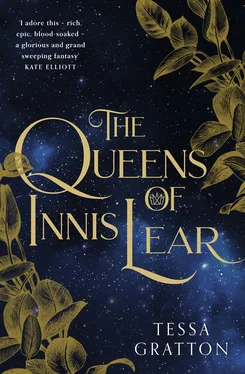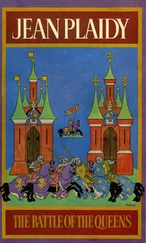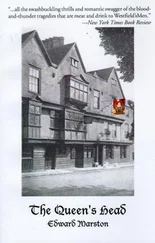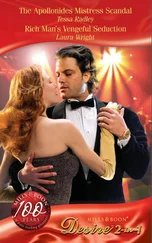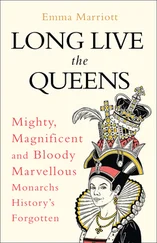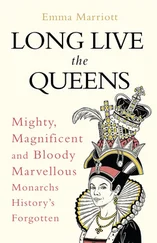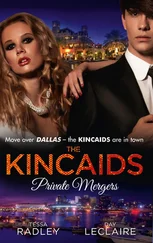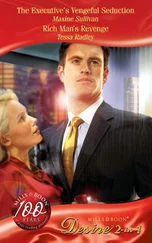“My king?” Errigal moved forward to take Lear’s other arm.
“I’ll not have your bastard in my retainers. I cannot breathe when he is near. His stars offend. Take him elsewhere.”
A tremor of absolute fury shocked through Ban, crown to toes. He’d not have served with the king’s retainers if his life itself depended on it.
Errigal shot Ban another warning glance but said gently to Lear, “One of my sons honoring you so is well enough acceptable for me, sir. I can use Ban at home.”
Ban bowed sharply, breath hissing out through his teeth. Without another word he left.
WHAT BEASTS FATHERS were, Ban thought darkly, head down, boots skidding on the rushes as he hurried on.
Outside, he lifted his face to the flat, still-blue sky. He’d rather get off this terrible promontory to find shade in the cool trees of the island. There was a place he knew, where the island reached up with ancient power, where surely Ban could dig his fingers into the ground and rekindle his heart’s lines.
But Elia. He grimaced, worried for her, though he had no right. She’d recognized him at dinner last night, and had smiled wondrously, as if so very glad to see him. In that moment, Ban had forgotten Morimaros of Aremoria and all the years in his service. He’d forgotten Errigal and the shame of bastardy. All he’d been was the boy who once made her a crown of wind and flower petals. She’d smiled then, too, and kissed him.
“Boy, stop,” Errigal growled, catching up to plant his arm across Ban’s chest and stick his nose in his son’s.
“The king has gone mad, Father,” Ban said calmly.
Errigal tilted his head as if he hadn’t yet decided on an opinion. “Kayo being banished was a terrible mistake, but the rest … that girl is an ungrateful whelp, and irrational for not bowing to this easy request made by king and father. Better she’s not given the crown, though he said it was his preference.”
A furious growl hummed in Ban’s throat, making his father smirk. Errigal said, “There’s that passion I remember.”
Ban jerked back, but Errigal clapped his hand onto Ban’s shoulder. “Ah, am I ever glad the stars chose not to make me have to worry about such things as dividing my land between children.”
The cool relief in his father’s words made Ban stare at his father with a creeping wonder. Errigal did have two named sons, after all. And only one of them had already earned fame and respect in war. In the beginning, the entire point of his success in Aremoria had been to show that Ban was as worthy as his brother.
Errigal caught Ban’s frown and looked surprised. “What! Stars—my boy, you thought …”
Nauseated, Ban turned away.
“Son.” Errigal roughly threw an arm around him, pulling him back. “You have my name, you have a place in my ranks, and surely you know your brother will always welcome you—Rory is incorrigibly kind, and he has always liked you. He pestered me constantly this last year to bring you home.”
Ban said nothing, understanding that he would always be subject to charity here, in this place where he was supposed to belong, where he’d been born, where his mother’s roots thrived. This place and its laws and its king did not want him. Ban had made the right choice when he gave his word to Aremoria.
“You’re a good son,” Errigal continued, his hesitation not born of uncertainty, but of the earl’s deepest enemy: emotional honesty. “Everything a man could want in his issue, but for your origins.” To save the moment from too much intimacy, the earl forced a hearty laugh. “I’ve often said it was the great pleasure and zeal at your getting that formed you into such a passionate, skilled warrior. I wouldn’t have it another way.”
Ban forced his shoulders to relax into Errigal’s embrace. Play the role, Fox. “Thank you, Father. Your praise is much appreciated.”
“Ha! Good.” Errigal shoved Ban along, finished with the moment of fatherly affection.
Ban did not hesitate to desert the field.
NINE YEARS AGO,
WEST COAST OF INNIS LEAR
THE SUN SANK, and the king studied his youngest daughter as she studied the sky.
Lear lounged upon the rug he’d brought, a half-empty bottle of wine gouged into the damp earth beside him, his wool-encased elbows bent to support his weight, his bare ankles crossed. He watched his daughter as she tilted her head and spoke some phrase the wind kept from him. She clapped suddenly, in delight, as if she alone could see the precise moment the gentle pink clouds became loose violet haze. Her hair bobbed in its own rhythm, like a cloud itself: an ecstatic, curling puff of copper and brown. It strengthened the king’s aggrieved heart to see her, his favorite, intent upon the final moments of twilight, so ready to mark which star might first appear.
But then the princess fluttered her hand at the young boy crouched a few paces from the hem of her dress, and as the boy glanced up at her his face went from scowling and concentrated to relaxed and smiling. She had that effect on many, though the king would rather it not extend to Errigal’s bastard. The boy’s legitimate brother yelled and skidded half the meadow away, a wide stick held up like a sword in a very good offensive position to fight off invisible enemies. That one, the king thought, was destined for great purpose. The stars had clearly stated it on the night of his birth. He was the king’s godson, named Errigal, too, though to distinguish him from his father the earl, everyone called him Rory. Would that Elia showed her preference to the gilded Rory, who was so beloved by the sun and saints of the earth that he bore the marks of their affection: dark red freckles all over his skin. As if his body were made an earthly mirror to the firmament itself.
As the king stared fondly at his godson, his youngest daughter clapped again, and he saw her fall to her knees in the churned dirt where the bastard boy had turned over a heavy field stone. The flat granite stood upright for a moment, then tipped away from the children, landing with a solid thump against the meadow grass. The king’s daughter laughed, and the boy bent over the fresh filth, digging with one hand, touching the princess’s hem with his other.
Lear’s daughter scooted nearer the bastard and dug her hand into the mud with him, dragging out a long, fat worm. “Elia,” the king said, frowning.
His daughter glanced at him, thrusting out the worm with a smile of triumph. It was pale and slick-looking in her eleven-year-old hand. No elegance or rich gleam like the sorts of ribbons that should curl around her noble wrist. The king shuddered at the grotesquery and opened his mouth to chide her, but she giggled at something the bastard muttered, turning away from her father.
The boy, wiry and smaller than his gilded brother, smaller than the king’s favorite daughter even, though they were of age, splayed his left hand. It was nearly as dark as the princess’s, though less smooth, less bright: she was a statue molded from fine metal, and he a creature built of mud and starshadow. The king had always thought so: the boy had been born under a dragon’s tail moon, and forged in an unsanctioned bed. What a disaster for Errigal, the king had always said, always counseled his friend the earl against such passionate dalliance. But some men refused to govern their bodies as they would their minds.
The bastard displayed on his outstretched hand a shining emerald.
No—merely a beetle shimmering all the colors of a deep summer day. The boy plucked the beetle from his hand and placed it upon the princess’s.
She squealed that the tiny legs tickled her skin, but she did not toss the insect away.
The king watched through narrowed eyes as their heads leaned together, temples brushing until her puffed curls and his black braids blended. “Elia,” the king said again, this time a low command.
Читать дальше
